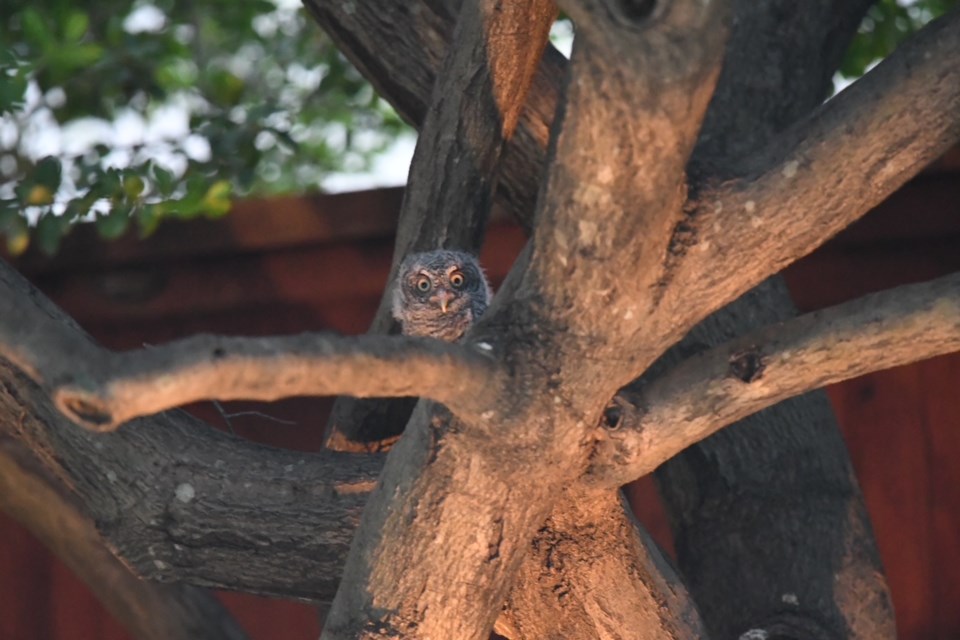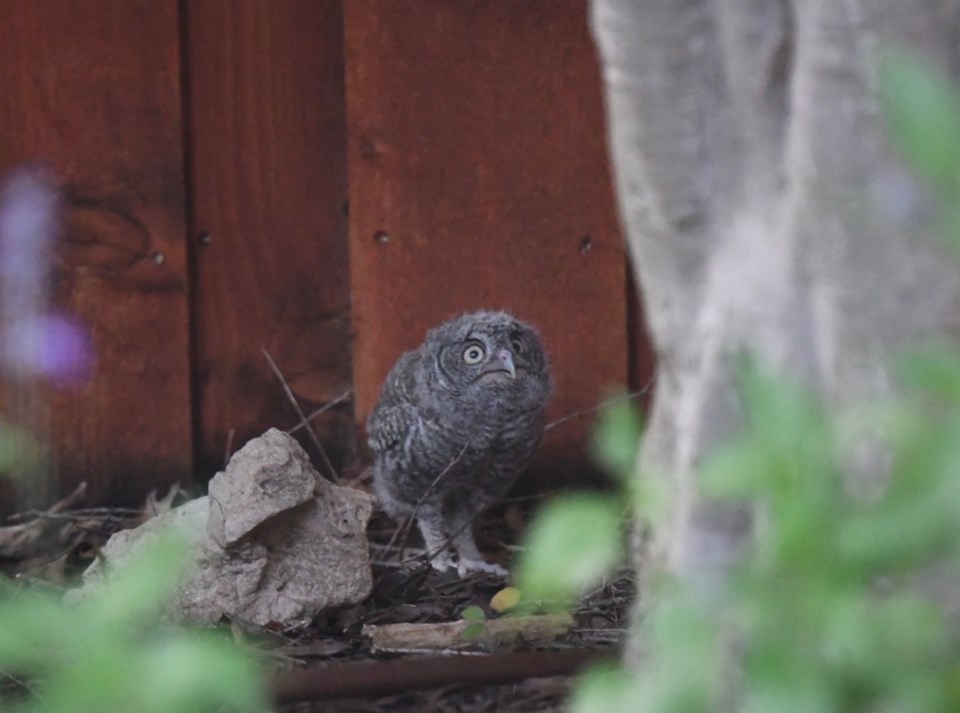Plano resident Nancy Riggs wasn’t planning to play wildlife rehabber when she stepped into her backyard. But that changed quickly when she spotted a soggy, stunned eastern screech owl floundering in her pool.
“I found one of the owlets in the pool,” Riggs said. “He was sitting in a tree right over the pool. Can’t tell if he was attacked by crows… but he is very lethargic.”
With her husband laid up after back surgery and no way to leave the house, Riggs did what any resourceful neighbor would do: she boxed up the little owl in a towel and called in reinforcements.
And just like that, an unlikely rescue mission was underway — owl, towel and all. Thanks to Mike, a worker with the Blackland Prairie Raptor Center (BPRC), the baby owl was transported safely to the BPRC.
A Happy Reunion
At the BPRC facility, the young owl was examined and treated by the center’s rehabilitation staff. Once he had fully recovered, BPRC team member Meredith returned to Rigg’s backyard to release the owl and reunite him with his family.

“Meredith from Blackland Prairie Raptor Center returned our little ‘swimmer’ today and the baby was just fine,” Nancy shared. “He didn’t want to stay in the tree, but mom and dad were swooping in and around, keeping a watchful eye! Watching to see if he eventually goes up the tree to be with the other two siblings!”
This Happens More Than You’d Think
According to BPRC Community Engagement Coordinator Hailey LeBaron, stories like this one are far from rare, especially in spring and summer.
“We receive between 600 and 800 injured and orphaned birds of prey a year,” LeBaron told Local Profile. “The majority of those patients come during 'baby season,' which can last from April through September. Eastern screech owls account for close to a third of our total patients. We currently have over 50 eastern screech owls being treated, and I would guess over three-quarters are young babies.”
Pools and other bodies of water can be tricky hazards for young owls and other birds to navigate. “Their wing muscles aren’t strong enough to fly,” Riggs told Local Profile.

What To Do If You Find An Animal In Need
If you find a baby owl or any bird of prey in distress, LeBaron encourages calling BPRC’s hotline at 469-964-9696, which is monitored daily from 9 a.m. to 9 p.m.
“Sometimes it’s easy enough to return an owl back to its nest,” LeBaron explained. “But through pictures and consultation, our team may determine that additional help is needed.”
If you need to care for a bird temporarily, the center advises keeping it in a warm, dark and quiet space — like a pet carrier in a closet or garage — with no access to food or water until professionals arrive.
Don't miss anything Local. Sign up for our free newsletter.




![Top 5 Reads Of The Week [August 18 - 22]](https://www.vmcdn.ca/f/files/localprofile/images/food-and-drink/img_7561-2.jpg;w=120;h=80;mode=crop)